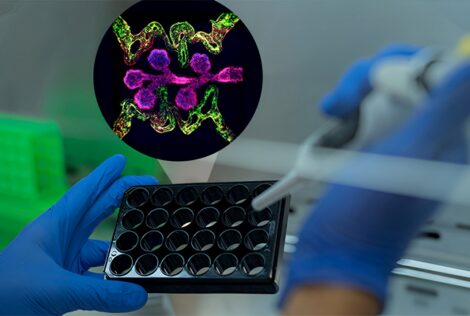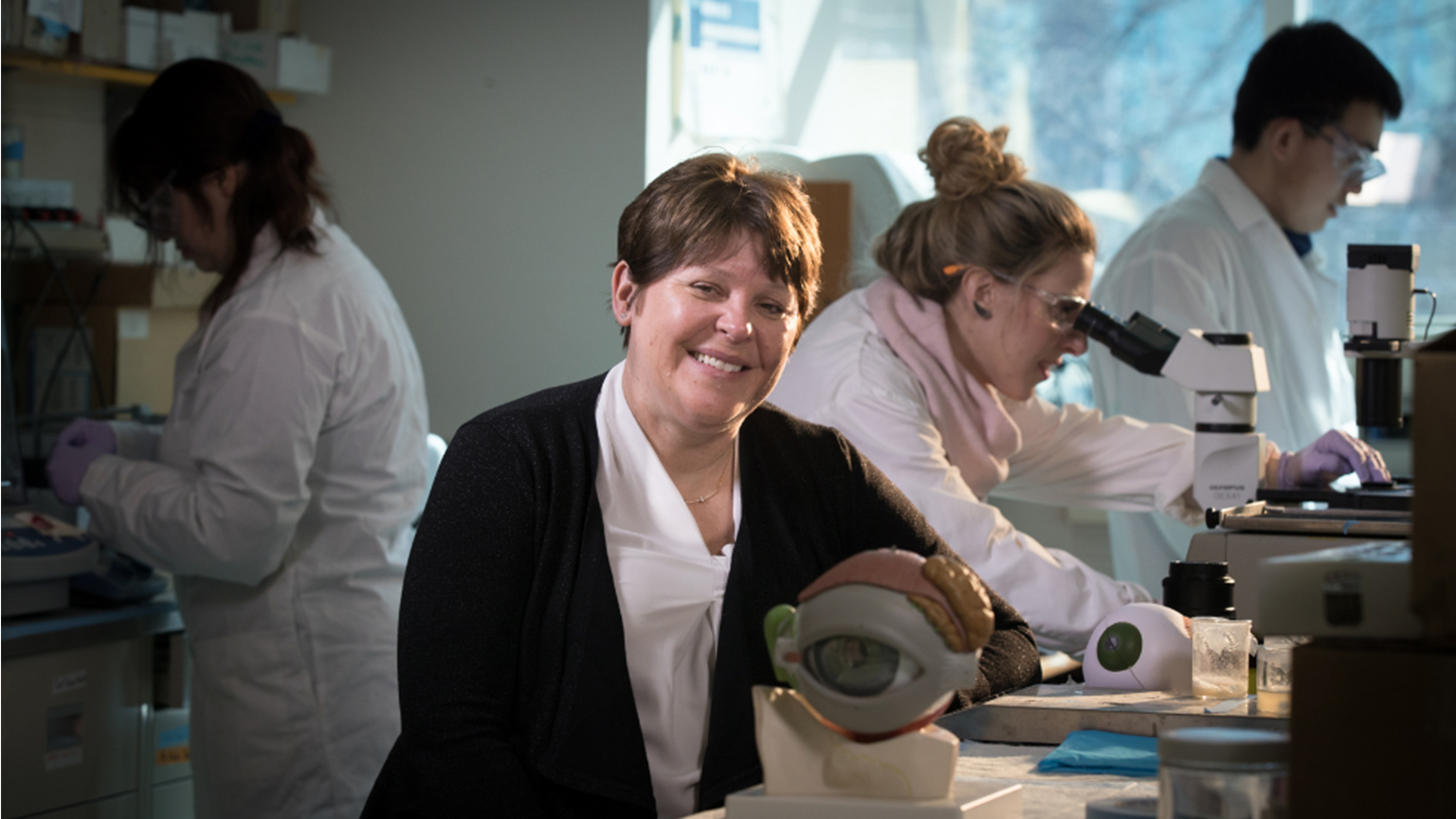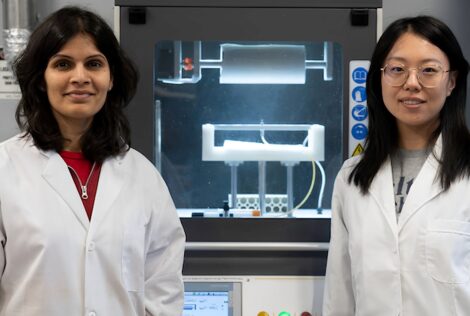

A new drug delivery system for patients with eye disease, developed by Ripple Therapeutics and validated pre-clinically in partnership with The Sheardown Lab, has been featured in the latest issue of Nature Communications.
The study highlights the pre-clinical testing and validation of the Epidel™ drug delivery technology, which is based on a discovery that drugs can be engineered into controlled release pharmaceuticals without polymers or excipients.
“We were able to test and validate a technology and then further refine it through a spin out company, moving it forward,” says Heather Sheardown who leads The Sheardown Lab, is a Tier 1 Canada Research Chair in Ophthalmic Biomaterials and a chemical engineering professor at McMaster. “This process can be a huge barrier for some great technologies and this paper demonstrates that we have the ability to bridge that gap.”
This past February, The Sheardown Lab and Ripple Therapeutics received a Natural Sciences and Engineering Research Council (NSERC) Alliance Grant of just over $500,000 to further develop the technology and to continue to build new methods for treating vision disorders.
“We’ve created a delivery system whereby the drug itself creates a solid polymer that degrades slowly and the release is constant,” explains Wendy Naimark, Chief Technology Officer, Ripple Therapeutics. “This is an amazing advance in the drug delivery field and we look forward to continuing to work with The Sheardown Lab on applying this method to new drug applications.”
Sheardown adds that the technology is now moving through the FDA-approval process, clinical testing has begun and the first patients have been enrolled.
The Sheardown Lab focuses on vision health, with expertise in contact lenses, targeted drug delivery, preclinical modeling and polymer chemistry, with an emphasis on commercialization.
Hear an in-depth conversation with Heather Sheardown and Fran Lasowski on the future of drug delivery for the eye, and how it could even have potential applications for medications to treat COVID-19.


